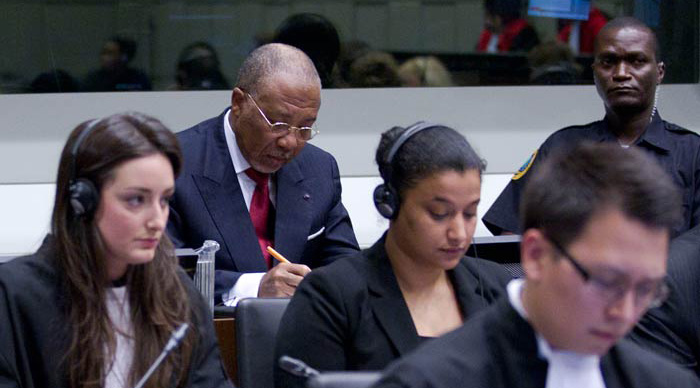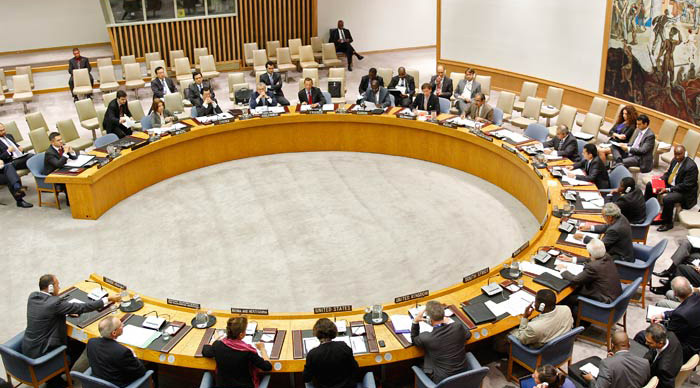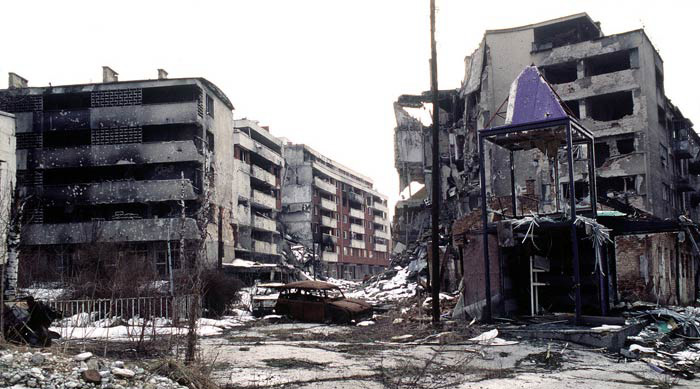Casting a Wider Net: Holding arms supplying states responsible for war crimes

Prof. Nina H. B. Jørgensen
Faculty of Law
The downing of flight MH17 could have legal ramifications for Russia if the country is found to have supplied the Buk missile that is thought to have brought down the plane.
Under a new treaty, countries can potentially be held responsible if they supplied arms that were then used in war crimes. This developing area of the law is the specialty of CUHK law professor Nina H. B. Jørgensen
The Arms Trade Treaty strengthens the possibility for a state to be held accountable for complicity in genocide or war crimes, according to Jørgensen. That would be important both symbolically, bringing some closure to the relatives of those who have suffered, as well as practically – a nation could be required to make reparations to surviving victims and the families of those affected.
"The idea is to make sure genocide and war crimes don't happen," Jørgensen says. "If state parties take care when they transfer arms, then the treaty will effectively serve its preventive function. But when those crimes do happen, it raises the question of complicity on the part of the state supplying the arms. In my view there should be justice on both levels, with individuals and states taking responsibility for their actions."
The key to interpreting this area of the law is the definition of the word "complicity." Jørgensen draws on a series of recent cases in which the individual criminal responsibility of high-ranking State officials for aiding and abetting international crimes through arms transfers has been addressed to develop a novel argument as to the proper interpretation of state responsibility for assisting such acts.
The basis for her interpretation of international law is the Arms Trade Treaty. Among other things, the treaty prohibits states from transferring arms if they have knowledge at the time of authorizing the transfer that the arms would be used in the commission of international crimes such as genocide and war crimes. Jørgensen's research focuses on the consequences for states when this provision of the treaty is breached.
The United Nations adopted the treaty, which covers everything from small arms up to tanks and warships, last year. So far, 118 nations have signed the treaty, although only 41 have ratified it. It will go into effect after 50 countries have ratified it.
Notably, Russia and China have not signed the treaty, and the United States has yet to ratify it. They are some of the largest arms traders in the world, and rightly concerned about the potential fallout from the treaty, Jørgensen notes.

There have been examples of heads of state being prosecuted, such as Charles Taylor, the former Liberian president, found guilty of aiding and abetting war crimes by supplying arms and ammunition to rebels in Sierra Leone. But to date they have been held personally responsible, as if they acted on their own.
Jørgensen spent eight years working for international criminal tribunals with the United Nations. Immediately prior to joining the Faculty of Law of CUHK, she worked for the Special Court for Sierra Leone where she was part of the prosecution team in the Charles Taylor case. Such experience has encouraged her to examine further the issue of state culpability which was the topic of her doctoral thesis.
Jørgensen's work is unique since it examines the relationship between two different tracks of international law: state responsibility and individual criminal responsibility. So far, states have not been held to the same standards that are applied to individuals. The two lines of law have been treated as separate but Jørgensen is seeking, for the first time, to link the individuals who carry out war crimes to the state they serve.
As far back as her thesis, she examined this nexus, first analyzing the Bangladesh genocide in 1971. Jørgensen believes there's a strong case that states should be treated much the same as individuals who perpetrate war crimes.
"States are responsible if they use force or threaten force," Jørgensen says. "The challenge is to hold them to account. Aggression historically is the supreme international crime. In principle, aggression is something that a state or somebody at a very high level decides. You can't have a foot soldier deciding."

The number of war crimes tribunals has mushroomed in recent years, with more and more individuals prosecuted for their role in, for instance, the conflicts in Serbia, Bosnia and Kosovo. But finding the state itself responsible presents unique challenges.
Bosnia did in fact bring a case against Serbia in the International Court of Justice, alleging Serbia's involvement in genocide at Srebrenica. More than 8,000 Bosnians, mainly men and boys, were killed in and around that town in July 1995. The court finally ruled that Serbia was not responsible for complicity in genocide but didn't do enough to prevent it either.

A Dutch court recently ordered the Netherlands to pay compensation to the families of more than 300 men turned over to Serb forces by Dutch peacekeepers who were supposed to be protecting the Srebrenica residents. However, the court cleared the Netherlands of responsibility for the broader massacre.
The Arms Trade Treaty "should enhance the mechanisms and the ability to hold states to account so they can't evade responsibility by saying they were just engaging in ordinary trade or by allowing individuals to be scapegoats," Jørgensen says.
By Alex Frew McMillan
This article was originally published on CUHK Homepage in Aug 2014.

